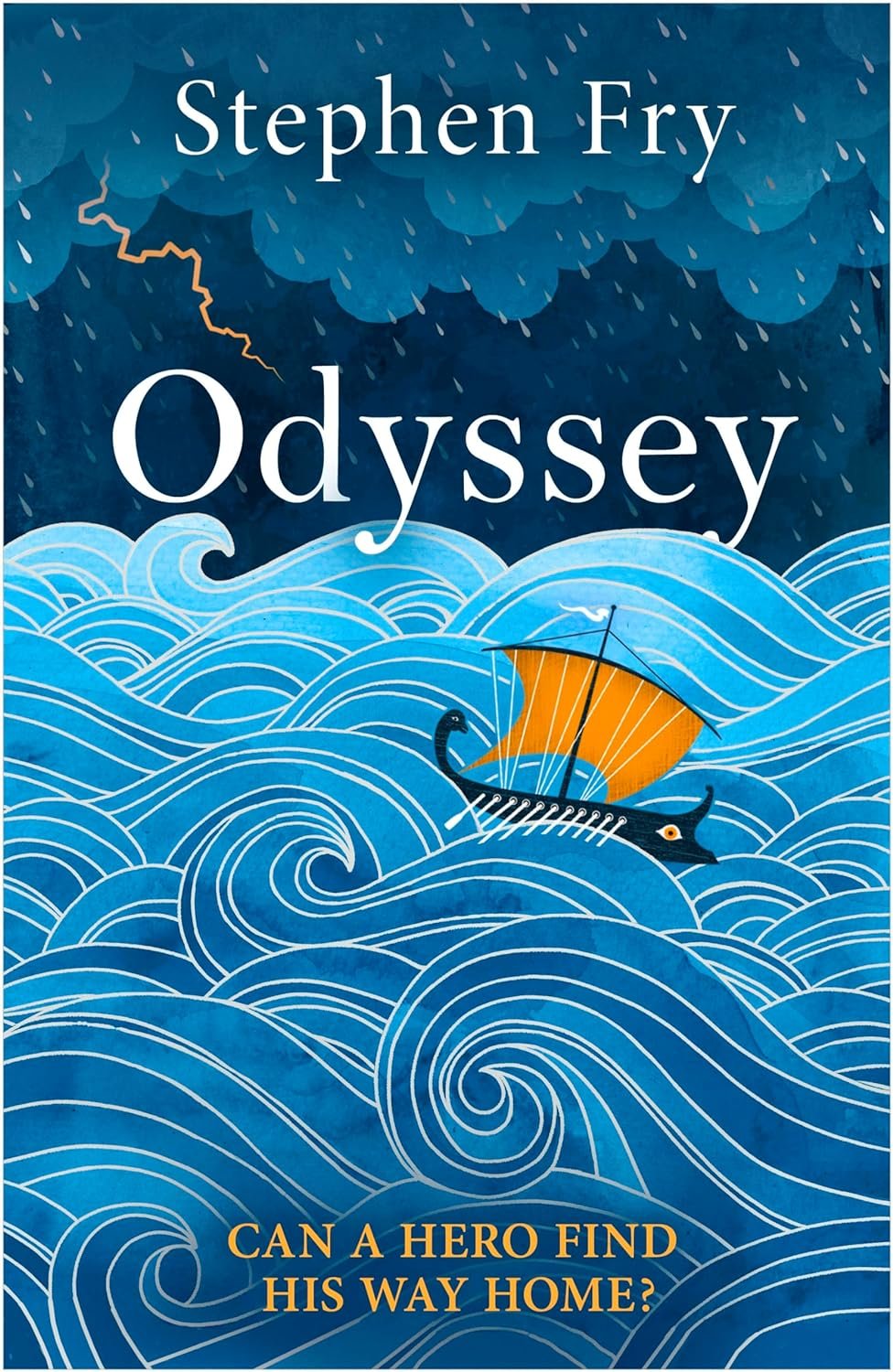A Personal Journey Through Odyssey by Stephen Fry: A Modern Marvel of Ancient Myths
As a lifelong lover of mythology, I found myself irresistibly drawn to Odyssey, the latest entry in Stephen Fry’s Great Mythology series. The allure of Fry’s witty prose combined with the rich tapestry of Greek lore was simply too captivating to resist. It’s a modern retelling of a classic that feels like catching up with an old friend who knows all the right stories, but tells them in a way that makes them fresh and relatable.
Fry’s Odyssey immerses readers in a whirlwind of adventure, heartbreak, and the enduring themes that have captured the human spirit for millennia. While many readers fell in love with Greek retellings following the success of Madeline Miller’s Circe and The Song of Achilles, Fry’s approach is refreshingly different. He’s not reinventing the wheel; rather, he’s illuminating it, presenting the original narratives in a modern voice without straying too far from their ancient roots. This makes Odyssey, while not strictly a fictional retelling, a fantastic entry point for anyone looking to delve into the intricacies of Greek myths.
The narrative weaves through the journey of Odysseus, filled with trials that resonate on a personal level. Fry skillfully manages character development, making Odysseus’ struggles feel tangible and relatable. You can’t help but root for him as he faces the wrath of gods and the challenges of returning home. His deft touch with the supporting cast adds depth, although, at times, I felt certain character voices merged into the general conversational tone—something that could slightly detract from the unique essence of each persona.
Fry’s talent shines in his writing style, which blends humor, insight, and educational richness. His footnotes are a gem, offering context that enriches our understanding without disrupting the narrative flow. For those who find diving into Homer’s original texts daunting, Fry serves as an engaging guide, bridging the gap between classical literature and modern readers, much like Edith Hamilton did, albeit with a more contemporary flair.
One of the standout moments for me was in the final chapters, where Fry reflects on the significance of these myths in our current world. His thoughts felt profoundly resonant, underscoring the timelessness of these tales and their ability to inform our understanding of humanity today.
Yet, if I had to pinpoint a caveat, it would be the occasional lapse into a too-modern conversational style. While Fry’s wit is one of his greatest assets, it sometimes risks overshadowing the gravitas of the original tales. However, in the grand scheme of these epic myths, this is more of a gentle quibble than a dent in the overall experience.
In conclusion, I wholeheartedly recommend Odyssey to anyone interested in mythology or searching for a lively, insightful introduction to Greek myths. It serves both as an entertaining story and an excellent primer that balances fidelity to the original tales without sacrificing accessibility. Personally, it has reignited my excitement to explore the original texts, and I’m eager to dive into the depths of Homer’s Iliad. Fry’s series has truly gifted our generation a means to explore these age-old stories, and for that, I am endlessly grateful.
Rating: 7.5/10
Whether you’re a seasoned mythology buff or a curious newcomer, Fry’s Odyssey promises to enchant and educate, making it a delightful read for anyone eager to journey through the ages.
[ad_2]
Discover more about Odyssey (Stephen Fry’s Great Mythology, #4) on GoodReads >>







